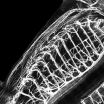(Press-News.org) CHAMPAIGN, Ill. — A University of Illinois economist says consumers and investors concerned about the specter of deflation looming over an already bleak economic landscape should relax – for the time being, at least.
Although the consumer price index is near zero, J. Fred Giertz says we're unlikely to see a prolonged deflationary period like the slump Japan experienced during its "lost decade" of the 1990s.
"We're close to zero right now, but we're not below zero," said Giertz, an Institute of Government and Public Affairs economist who compiles a monthly barometer on the Illinois economy. "It's part of a bigger picture of where the economy is going, and I think the economy is stalled out in a very slow recovery."
Giertz says deflation "isn't necessarily the worst thing in the world," but it would undoubtedly create more problems for an already battered economy.
"Generally, we like very little inflation – we can live with 1 to 3 percent inflation per year," he said. "But when it's at zero or below zero, that's a little more problematic. Consumers react by waiting on purchasing big-ticket items – homes, automobiles and appliances – because they think prices are going to fall. So they may defer consumption, which makes the overall economy even worse."
Although the Federal Reserve has the means to tame inflation, Giertz says its tools to fight deflation are much more limited.
"The Fed has a lot of ability to deal with inflation – they have less ability to deal with the situation we're in right now," he said. "When the consumer price index gets close to zero, the Fed's options become limited."
One thing the Fed can do is to buy Treasury bonds, Giertz says.
"They're doing that right now, and by doing so, they're trying inject more capital into the money supply. But the low interest rate environment that we're in right now makes monetary policy that much more difficult."
Even though interest rates on a 30-year mortgage are at all-time low, Giertz says home sales are down because homeowners could be having difficulty qualifying for loans because their creditworthiness is deteriorating, or because their income has taken a hit.
"Interest rates are very low, but you need to be creditworthy in order to capitalize on these record-low rates," he said. "Everything has an upside and a downside, so there are no easy answers. It's good news, bad news."
With homes sales flat lining, Giertz doesn't foresee another incentive program for home sales this spring – at least, not unless things get really bad.
"At some point you want the market to take off on its own, and not depend on subsidies," he said. "Eight thousand dollars per house is pretty expensive way to keep the housing market moving. The recovery has been very painful, and it's taking a very long time to turn around, but that's the place we're in right now."
Despite the prolonged slump, Giertz is bearish on the prospects of a second stimulus, citing both the efficacy and the lack of popularity of the first.
"That's a question I don't think anyone knows the answer to," he said. "You could line up Nobel Prize winners on both sides of that argument, so there's obviously no consensus. One argument against a second stimulus is that the first stimulus didn't work too well – it was supposed to keep the unemployment rate at eight percent, so that it wouldn't go up to 9 percent. But now the rate is at 10 percent, so the predictions were way off base."
For anxious consumers and investors, the only thing left to do is wait.
"My opinion is that we've probably done enough, and now we just need to be patient," Giertz said. "One possibility is it's just a temporary dip and we'll start a more vigorous recovery. The other is it may be long-term slow growth."
The worst-case scenario, according to Giertz, is that it turns into a double-dip recession, though he doesn't foresee that as being very likely.
"If we have a double-dip recession, that's when we might get into the possibility of deflation," he said. "It's certainly possible that we could go into a prolonged recession, but I don't think that will be the case. I think we'll probably start to grow again, but not as fast as we would like. I also think it's going to be a long time until we get back to low unemployment rates."
What's happened in the economy from 2008 to the present has been "out of the range of experience" for most economists, Giertz said.
"No one really thought it was a Great Depression until 1931 or '32," he said. "Everyone thought it was just another bad recession and we'll bounce back. Over the last three decades, we've had this period of great moderation where, rather than having a recession every five or six years, we've had one every 10 years, so they've been pretty infrequent and quite mild. The unemployment rate didn't go up that much then, and output continued to keep pace. But this time, I think there was some hubris; we got a little overconfident that we had our economic problems mastered.
"It turns out that bad, unexpected things can still happen."
INFORMATION:
Editor's note: To contact J. Fred Giertz, call 217-840-9148; e-mail jgiertz@illinois.edu.
No need to worrry about deflation -- yet, U. of I. economist says
2010-09-08
ELSE PRESS RELEASES FROM THIS DATE:
Brown-led research divines structure for class of proteins
2010-09-08
PROVIDENCE, R.I. [Brown University] — Most proteins are shapely. But about one-third of them lack a definitive form, at least that scientists can readily observe. These intrinsically disordered proteins (IDPs) perform a host of important biological functions, from muscle contraction to other neuronal actions. Yet despite their importance, "We don't know much about them," said Wolfgang Peti, associate professor of medical science and chemistry. "No one really worried about them."
Now, Peti, joined by researchers at the University of Toronto and at Brookhaven National Laboratory ...
New compound safely reduces plaques in mouse model of Alzheimer's disease
2010-09-08
A new study identifies molecules that can be used to selectively reduce generation of the sticky, neuron-damaging plaques that are the hallmark of the Alzheimer's disease (AD) brain. The research, published by Cell Press in the September 9 issue of the journal Neuron, may lead to the development of effective and safe therapeutics for this currently incurable disease.
Previous research has suggested that an alteration in brain levels of amyloid ? proteins (A?) plays a major pathogenic role in AD, a devastating neurodegenerative disorder that causes progressive cognitive ...
Brain mechanism linked to relapse after cocaine withdrawal
2010-09-08
Addictive drugs are known to induce changes in the brain's reward circuits that may underlie drug craving and relapse after long periods of abstinence. Now, new research, published by Cell Press in the September 9 issue of the journal Neuron, uncovers a specific neural mechanism that may be linked to persistent drug-seeking behavior and could help to guide strategies for development of new therapies for cocaine addiction.
Previous research has shown that the ventral tegmental area (VTA) is a brain region that is activated when cocaine users experience a craving for cocaine ...
Single gene regulates motor neurons in spinal cord
2010-09-08
New York (September 8, 2010) – In a surprising and unexpected discovery, scientists at NYU Langone Medical Center have found that a single type of gene acts as a master organizer of motor neurons in the spinal cord. The finding, published in the September 9, 2010 issue of Neuron, could help scientists develop new treatments for diseases such as Lou Gehrig's disease or spinal cord injury.
The "master organizer" is a member of the Hox family of genes, best known for controlling the overall pattern of body development. By orchestrating a cascade of gene expression in ...
Compounds fend off Alzheimer's disease amyloid pathology
2010-09-08
A team of scientists, led by University of California, San Diego School of Medicine researchers, has synthesized hundreds of new compounds with the potential of reducing the production of the A-beta 42 peptide, a primary component of Alzheimer's disease (AD).
In mouse models, one tested compound specifically reduced levels of A-beta 42, which is believed to be responsible for the destruction of neurons, but left other essential enzymatic activities in the brain unaffected, said Steven Wagner, PhD, a project scientist in the UCSD Department of Neurosciences.
The ...
Extreme X-ray source supports new class of black hole
2010-09-08
A group of international astronomers in the UK, France and the USA, led by the University of Leicester, have found proof to confirm the distance and brightness of the most extreme ultra-luminous X-ray source, which may herald a new type of Black Hole.
The X-ray source, HLX-1, is the most extreme member of an extraordinary class of objects – the ultra-luminous X-ray sources – and is located in the galaxy ESO 243-49 at a distance of ~300 million light years from the Earth.
The astronomers' findings confirm that the extreme luminosity (which is a factor of ~100 above ...
MIT researchers find that interneurons are not all created equally
2010-09-08
CAMBRIDGE, Mass. – A type of neuron that, when malfunctioning, has been tied to epilepsy, autism and schizophrenia is much more complex than previously thought, researchers at MIT's Picower Institute for Learning and Memory report in the Sept. 9 issue of Neuron.
The majority of brain cells are called excitatory because they ramp up the action of target cells. In contrast, inhibitory cells called interneurons put the brakes on unbridled activity to maintain order and control. Epileptic seizures, as well as symptoms of autism and schizophrenia, have been tied to dysfunctional ...
Neurogenetic studies show proprietary compound reduces brain plaques linked to Alzheimer's
2010-09-08
SAN DIEGO -- In the Sept 9, 2010 issue of Neuron, Neurogenetic Pharmaceuticals, Inc. (NGP) reports proof of concept studies that show its proprietary compound, NGP 555, is effective in preventing the amyloid pathology of Alzheimer's disease (AD) in a transgenic mouse model. The study further demonstrates that following chronic treatment with the gamma secretase modulator (GSM) compound from NGP, the mice were devoid of gastrointestinal side effects, an adverse finding commonly associated with gamma secretase inhibitors (GSIs).
A major pathological hallmark of Alzheimer's ...
Use of informatics, EMRs enable genetic study of vascular disease
2010-09-08
Scientific research published in the current issue of the Journal of the American Medical Informatics Association (JAMIA) reports on a study of genetic variants that influence human susceptibility to peripheral arterial disease (PAD), made possible by leveraging electronic medical records (EMRs; also called EHRs or electronic health records). A team of authors from the Mayo Clinic Divisions of Cardiovascular Diseases and Biomedical Informatics and Statistics conducted the study and concluded that EMR-based data, used across institutions in a structured way, "offer great ...
NOAA designates the eastern North Pacific basking shark a 'species of concern'
2010-09-08
NOAA's Fisheries Service has designated the eastern North Pacific basking shark, a "species of concern" because it has suffered a dramatic decline in population despite decreasing fishing pressure. The label "species of concern" may be given to a species when there are concerns regarding the population status.
The eastern Pacific basking shark is not being considered for listing pursuant to the Endangered Species Act, rather it is a species of concern because it has been over fished and its population has apparently not responded to conservation measures implemented ...




